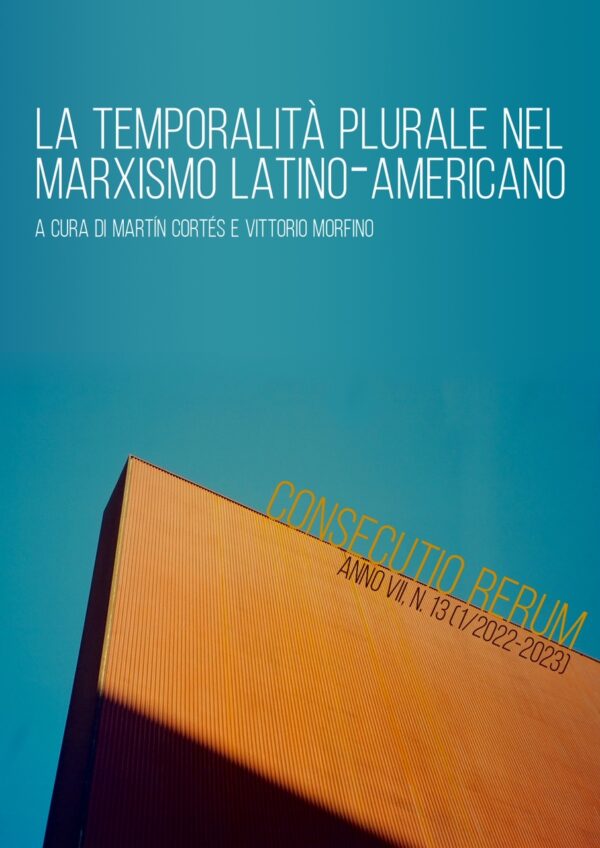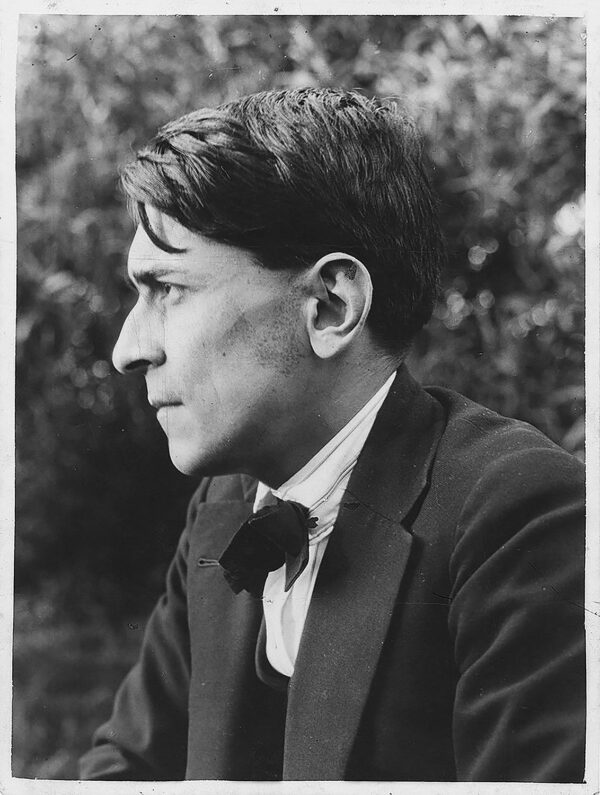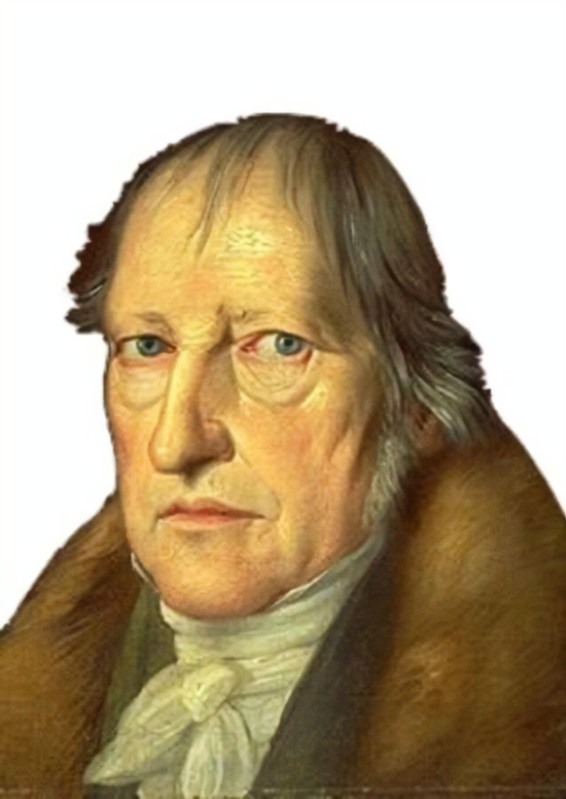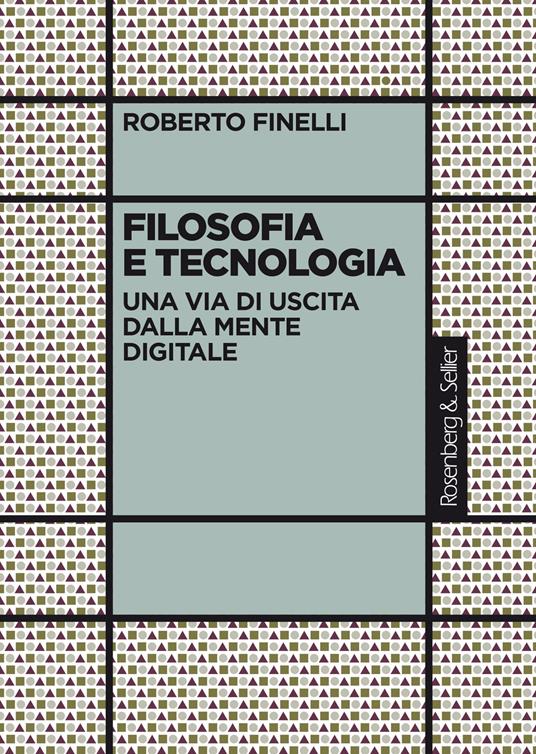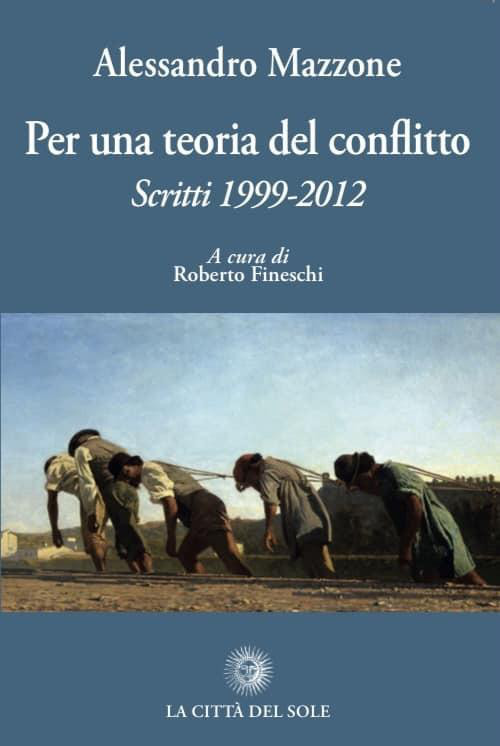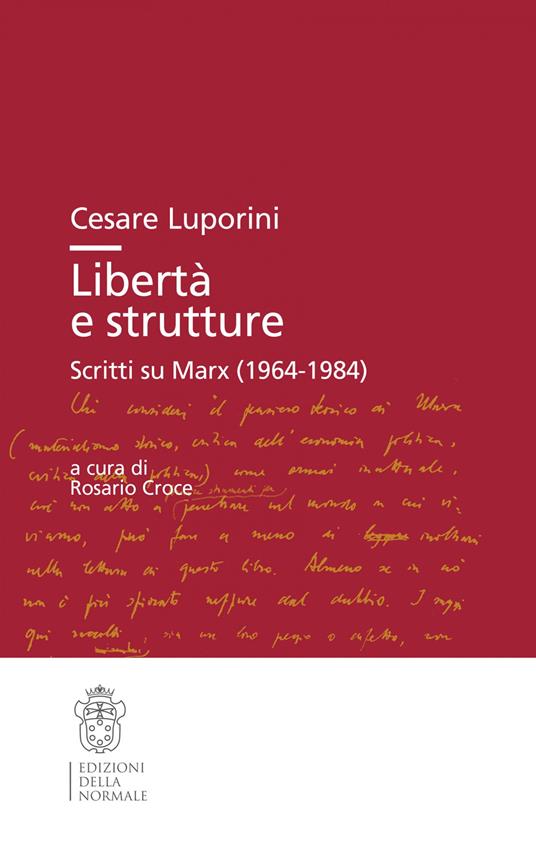Pagine
Condividi e segnala
Tag
- Althusser
- Antropologia
- Baumgarten
- Bourdieu
- Conceivability of Nothingness
- Conciliation
- corpo
- Derrida
- Dialectics
- Difference
- distinzione
- Europe
- Expression
- giudizio
- Grace
- Habitus
- Heidegger
- Hobbes
- Kant
- linguaggio
- Lyotard
- marxismo
- Medieval Aristotelianism
- Metaphysics
- Nature
- Negative
- Nichts
- nihil
- Nihilism
- nihil negativum
- nihil privativum
- Non-identical
- Nothing
- Nothingness
- onore
- politica
- postmoderno
- pratica
- riconoscimento
- Smith
- solitudine
- Sovranità
- Spinoza
- Thomas Aquinas
- Western Ontology
-
Articoli recenti
Link
Archivi categoria: NUMERO 13
Non siamo mai stati coevi. Per una storicizzazione della soggettività intraspecifica dell’ontological turn
Giulia Marotta
Università di Bologna (giuliamaria.marotta@studio.unibo.it; ORCID: 0009-0006- 5356-5592).
We Have Never Been Contemporary: For a Historicization of the Intraspecific Subjectivity of the Ontological Turn
Abstract: Analysing the ontological turn’s fundamentals, this paper aims at highlighting inherent contradictions within this theoretical framework, particularly concerning the denial of coevity between an ‘us’ and a ‘them’, imposed by Viveiros de Castro. The Brazilian anthropologist advocates for a methodological revolution in ethnography, achievable through the metamorphosis across different prospectives-ontologies: only by fully embodying the Other, entering their worlds and destroying our own initial subjectivity – and thus … Continua a leggere
Pubblicato in Monografica, NUMERO 15
Commenti disabilitati su Non siamo mai stati coevi. Per una storicizzazione della soggettività intraspecifica dell’ontological turn
CONSECUTIO RERUM ANNO VII, N. 13 (1/2022-2023)
La temporalità plurale nel marxismo latino-americano
a cura di Martín Cortés e Vittorio Morfino
Pubblicato in Copertina, NUMERO 13
Lascia un commento
Indice
Monografica
MARTÍN CORTÉS & VITTORIO MORFINO, Editoriale
SERGIO VILLALOBOS-RUMINOTT, El marxismo latinoamericano como crítica de la filosofía de la historia del capital
ALEJO STARK, On Mariátegui’s Plural Spatiotemporal Concept of History
DIEGO GILLER, René Zavaleta Mercado: marxismos latinoamericanos, historias nacionales, formaciones sociales abigarradas
MARIA TURCHETTO, Contro l’idea di progresso. Raúl Prebisch e la scuola dependentista latinoamericana
MARTÍN CORTÉS, José Aricó, la temporalidad plural y la cuestión de la nación: hacia el marxismo como teoría de la traducción
VITTORIO MORFINO, Il Gramsci teorico della congiuntura di Juan Carlos Portantiero
RAMIRO PARODI, El problema de la temporalidad plural en Álvaro
… Continua a leggere
Pubblicato in Indice, NUMERO 13
Lascia un commento
Editoriale
Martín Cortés & Vittorio Morfino
Martín Cortés: CONICET (martincortes@conicet.gov.ar; ORCID: 0000-0002-3338- 5133);
Vittorio Morfino: Università Milano Bicocca (vittorio.morfino@unimib.it, ORCID: 0000-0003-4512-9759).
Ernst Bloch nel suo libro del 1935, Erbschaft dieser Zeit (Eredità di questo tempo), riprendendo un giudizio espresso a più riprese da Marx, scrisse a proposito della Germania:
[è] il paese classico della non contemporaneità [klassische Land der Ungleichzeitigkeit], ossia dei residui non superati di un’esistenza e una coscienza economica più antiche. […]
Pubblicato in Monografica, NUMERO 13
Lascia un commento
El marxismo latinoamericano como crítica de la filosofía de la historia del capital
DOI: 10.5281/zenodo.7970504
Download
Sergio Villalobos-Ruminott
University of Michigan (svillal@umich.edu; ORCID: 0000-0002-9570-6780).
Latin American Marxism as Critique of the Philosophy of the History of Capital
Abstract: The following article is a panoramic presentation of what might be considered as the defining problematic of Latin American Marxism. However, far from claiming a substantive notion of Latin American Marxism, we attempt to show how the kind of questions elaborated within this horizon are relevant not only for the critique what has been erroneously conceived of as peripherical capitalism, but for the history and critique of capitalism as such, understood as … Continua a leggere
Pubblicato in Monografica, NUMERO 13
Lascia un commento
On Mariátegui’s Plural Spatiotemporal Concept of History
DOI: 10.5281/zenodo.7970557
Download
Alejo Stark
University of Michigan (alejo@umich.edu; ORCID: 0000-0001-5783-2797)
José Carlos Mariátegui
Abstract: In what follows I will provide some elements for constructing Mariátegui’s plural spatiotemporal conception of history. I will do so by primarily focusing on the two books he published in his lifetime: The contemporary scene and Seven Interpretive Essays on Peruvian Reality. It a footnote in the Seven Essays, the reader encounters a concept that opens up the problem of plural temporality in Latin American Marxism: relativismo histórico (historical relativism). This will be the keystone concept upon which certain fragments of … Continua a leggere
Pubblicato in Monografica, NUMERO 13
Lascia un commento
René Zavaleta Mercado: marxismos latinoamericanos, historias nacionales, formaciones sociales abigarradas
DOI: 10.5281/zenodo.7970601
Download
Diego Giller
IDH-UNGS/CONICET (diegogiller@gmail.com; ORCID: 0000-0001-7117-9608)
 René Zavaleda Mercado
René Zavaleda Mercado
René Zavaleta Mercado: Latin American Marxisms, National Stories, Abigarradas Social Formations
Abstract: The present work seeks to replenish the problem of the temporalities superimposed in the work of the Bolivian René Zavaleta Mercado (1937-1984). To do this, you work on three combined planes. First, the conditions of possibility of Marxism in Latin America from its possible conjugation with the national stories and the struggles that those stories suppose, that is, the complex link between the universal and the local, between Europe and Latin America, between … Continua a leggere
Pubblicato in Monografica, NUMERO 13
Lascia un commento
Contro l’idea di progresso. Raúl Prebisch e la scuola dependentista latinoamericana
DOI: 10.5281/zenodo.7970636
Download
Maria Turchetto
Università “Ca’ Foscari” di Venezia (mariaturchetto5@gmail.com; ORCID: 0000-0003- 4967-7103)
Raul Prebisch
Against the Idea of Progress. Raúl Prebisch and the Latin American dependentista School
Abstract: For two centuries we have thought about temporality and history with the category of progress: from the first formulations of the Enlightenment to the Rostow theory of development stages. An important criticism of the latter author comes from the Latin American dependentista school which – starting with Raúl Prebisch – explains the differences in economic development not in temporal terms (backwardness / modernity) but in spatial and geopolitical … Continua a leggere
Pubblicato in Monografica, NUMERO 13
Lascia un commento
José Aricó, la temporalidad plural y la cuestión de la nación: hacia el marxismo como teoría de la traducción
DOI: 10.5281/zenodo.7970678
Download
Martín Cortés
CONICET (martincortes@conicet.gov.ar; ORCID: 0000-0002-3338-5133)
 José Aricó
José Aricó
José Aricó, Plural Temporality and the Question of the Nation: Towards Marxism as a Theory of Translation
Abstract: This text intends to underline the centrality that the problem of plural temporality has in the work of José Aricó, especially in his reflection on the conditions of possibility of a Latin American Marxism. For this, his book Marx and Latin America is fundamentally analyzed together with a set of notes and drafts from his archive regarding it. It is argued that, in Aricó, the key to a reading … Continua a leggere
Pubblicato in Monografica, NUMERO 13
Lascia un commento
Il Gramsci teorico della congiuntura di Juan Carlos Portantiero
DOI: 10.5281/zenodo.7970695
Download
Vittorio Morfino
Università degli Studi di Milano-Bicocca (vittorio.morfino@unimib.it; ORCID: 0000- 0003-4512-9759)
Juan Carlos Portantiero
Gramsci Theorist of the Conjuncture according to Juan Carlos Portantiero
Abstract: The article shows the reading of Gramsci offered by Portantiero, a reading that not only enhances aspects of Gramsci’s work on which later critics will dwell extensively, but also connects them, subterraneously, without making it explicit, with the theory of differential temporality, the theoretical heart of Reading Capital. This extraordinary theoretical operation, carried out from Mexican exile during the dictatorship, makes it possible to read not only a “new” Gramsci, … Continua a leggere
Pubblicato in Monografica, NUMERO 13
Lascia un commento
El problema de la temporalidad plural en Álvaro García Linera
Ramiro Parodi
IIGG–CONICET (ramiro.parodi@hotmail.com; ORCID: 0000-0002-8331-1343)
Álvaro García Linera
The Problem of the Plural Temporality in Álvaro García Linera
Abstract: The article aims to introduce the problem of plural temporality in the work of Álvaro García Linera as a contribution to 21st century Marxism. The proposal is to define plural temporality as a problem of materialist tradition based on the reflections of Vittorio Morfino and Natalia Romé. We mention four characteristics that seem fundamental to us since they return in the work of García Linera: 1) the repositioning of a theory of time as non-contemporary; 2) … Continua a leggere
Pubblicato in Monografica, NUMERO 13
Lascia un commento
Disuguale e combinato. La rilettura della dialettica nella teoria critica brasiliana
Giovanni Zanotti
Università. di Brasilia (giovanni.zanotti86@gmail.com; ORCID: 0000-0001-8800-
Uneven and Combined: The Reinterpretation of the Dialectic in Brazilian Critical Theory
Abstract: This article briefly introduces three texts from the tradition of Brazilian critical theory, whose Italian translations are presented here for the first time: Roberto Schwarz’s inaugural essay As ideias fora do lugar (“Misplaced ideas”, 1972), Paulo Arantes’s A fratura brasileira do mundo (“The world’s Brazilian fracture”, 2001), and a recent scholarly contribution by Luiz Philipe de Caux and Felipe Catalani. Following the reconstruction of the Brazilian debate on the “point of view of periphery” offered … Continua a leggere
Le idee fuori posto
Roberto Schwarz
Traduzione di Giovanni Zanotti
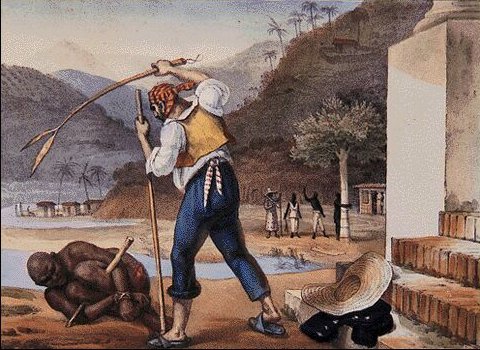 Schiavitù in Brasile, Jean Baptiste Debret
Schiavitù in Brasile, Jean Baptiste Debret
Misplaced Ideas
Abstract: This essay, written in 1972, is one of the cornerstones of Brazilian critical theory. From the standpoint of literary criticism, with a special focus on Machado de Assis’s late work, it analyzes the ideological mechanism of 19th-century Brazilian society, where European liberal ideas are “misplaced”, i.e., contradicted by slavery, yet are absorbed according to a peculiar logic, regardless of their own content. Precisely such “second-degree ideologies”, however, allow for a more intuitive understanding of liberalism’s intrinsic contradictions and an original … Continua a leggere
La frattura brasiliana del mondo. Sguardi dal laboratorio brasiliano della globalizzazione
Paulo Eduardo Arantes
Traduzione di Giovanni Zanotti
The World’s Brazilian Fracture: A Look from the Brazilian Laboratory of Globalization
Abstract: This 2001 essay discusses the concept of the “brazilianization” of the world, proposed in the 1990s by American, French, and German social scientists to designate the increasingly dual character of urban structures and labor markets in their respective societies. Referring back to traditional debates within Brazilian critical theory on dualism and dependency, it claims, on one side, that the “dualization” between a center and a periphery must be understood as a necessary effect of their contradictory unity. On … Continua a leggere
Il passaggio dal due allo zero. Dualità e disintegrazione nel pensiero dialettico brasiliano (Paulo Arantes lettore di Roberto Schwarz)
Luiz Philipe de Caux & Felipe Catalani
Traduzione di Felipe Catalani rivista da Giovanni Zanotti
Luiz Philipe de Caux: Universidade Federal Rural do Rio de Janeiro (luizphilipedecaux@gmail.com; ORCID: 0000-0002-2458-5563); Felipe Catalani: Universidade de São Paulo (felipecatalani@gmail.com; ORCID: 0000-0001-5133-3145).
Paulo Arantes
The Passage from Two to Zero: Duality and Disintegration in Brazilian Dialectical Thought (Paulo Arantes as a Reader of Roberto Schwarz)
Abstract: We try to explore the repercussion in the work of the philosopher Paulo Arantes of Roberto Schwarz’s ground intuition in his essay “Misplaced ideas”. The point of view of capitalism’s periphery (which overcomes itself … Continua a leggere
Le visioni di Ernesto Laclau e gli stratagemmi di Chantal Mouffe
Jacques Bidet
Traduzione di Elena Borghetti
Université Paris-Nanterre (jacques.bidet@parisnanterre.fr; ORCID: 0000-0002-5622- 0390).
 Chantal Mouffe
Chantal Mouffe
Ernesto Laclau’s Visions and Chantal Mouffe’s Stratagems
Abstract: Populism is considered here as a political form characterized by a direct relationship between a people and its leader. In this sense, there can be right-wing or left-wing populism. The latter is marked, according to the case, by an anti-capitalist or anti-colonialist orientation. In both authors, it is confronting a power concentrated in the heights of finance and technocracy. In Laclau’s prospective, political action is understood as a rhetorical action since rhetoric is supposed … Continua a leggere
Pubblicato in NUMERO 13, Varia
Lascia un commento
Impressioni d’archivio. Alcune considerazioni sui dispositivi di archiviazione dal Wunderbuch al database
Download
DOI: 10.5281/zenodo.7970999
Emilia Marra
Center for Advanced Studies, University of Rijeka
emiliamarra91@gmail.com

Archive impressions. Thoughts on archiving devices, from Wunderbuch to data-base
Abstract: The article contributes to the philosophical studies on the notion of archive. The ambiguity that characterises the archive, which can be understood as a technical tool, a physical place or the practice of archiving, allows for an investigation into the relationship between technogenesis and hominisation. Through the concept of grammatisation, it is possible to retrace three ‘philosophical’ stages in the development of the technical tool of archiving. If the transition from the Wunderbuch, … Continua a leggere
Pubblicato in NUMERO 13, Varia
Lascia un commento
Religione senza nevrosi: Erich Fromm sull’evoluzione del dogma cristiano
Download
DOI: 10.5281/zenodo.7970982
Luca Micaloni
Sapienza Università di Roma
luca.micaloni@uniroma1.it
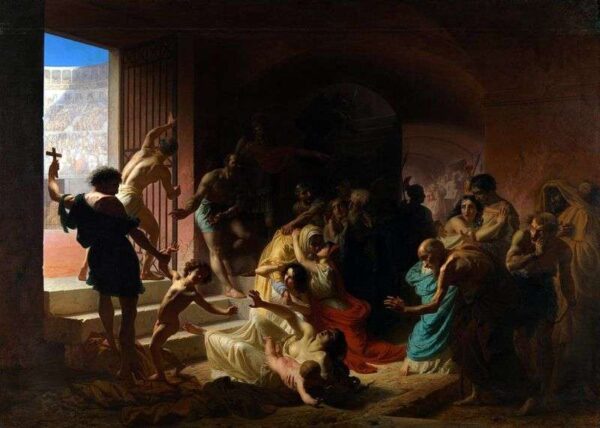
Religion without Neurosis: Erich Fromm on the Evolution of the Christian Dogma
Abstract: In this article, the Author reconstructs Erich Fromm’s interpretation of the development of the Christian doctrine. While drawing to some extent on the Freud-ian analysis of religion, Fromm does not insist on the comparison between devotional practices and obsessional neurosis, and sets forth a sociohistorical explanation of the changing of dogmas. In his view, major doctrinal shifts mainly depend on the social situation of groups: dogmas, particularly those regarding the relation between God the Father … Continua a leggere
Pubblicato in NUMERO 13, Varia
Lascia un commento
Roberto Finelli, Filosofia e tecnologia. Una via di uscita dalla mente digitale (Rosenberg&Sellier, 2022)
Pubblicato in NUMERO 13, Recensioni e segnalazioni
Lascia un commento


